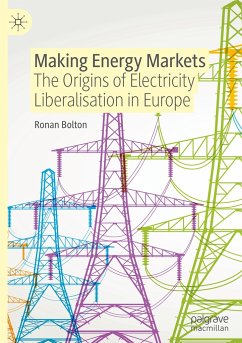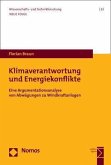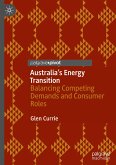Making Energy Markets charts the emergence and early evolution of electricity markets in western Europe, covering the decade from the late 1980s to the late 1990s. Liberalising electricity marked a radical deviation from the established paradigm of state-controlled electricity systems which had become established across Europe after the Second World War. By studying early liberalisation processes in Britain and the Nordic region, and analysing the role of the EEC, the book shows that the creation of electricity markets involved political decisions about the feasibility and desirability of introducing competition into electricity supply industries. Competition introduced risks, so in designing the process politicians needed to evaluate who the likely winners and losers might be and the degree to which competition would impact key national industries reliant on cross-subsidies from the electricity sector, in particular coal mining, nuclear power and energy intensive production. The book discusses how an understanding of the origins of electricity markets and their political character can inform contemporary debates about renewables and low carbon energy transitions.
"This book is therefore neither a history of technology work nor even a history of energy. However, Bolton succeeds in making understandable a particular period, that of the incomplete transformation of the electrical systems inherited from the second Industrial Revolution into the fundamental infrastructures of energy transitions." (Yves Bouvier, Technology and Culture, Vol. 64 (2), April, 2023)








